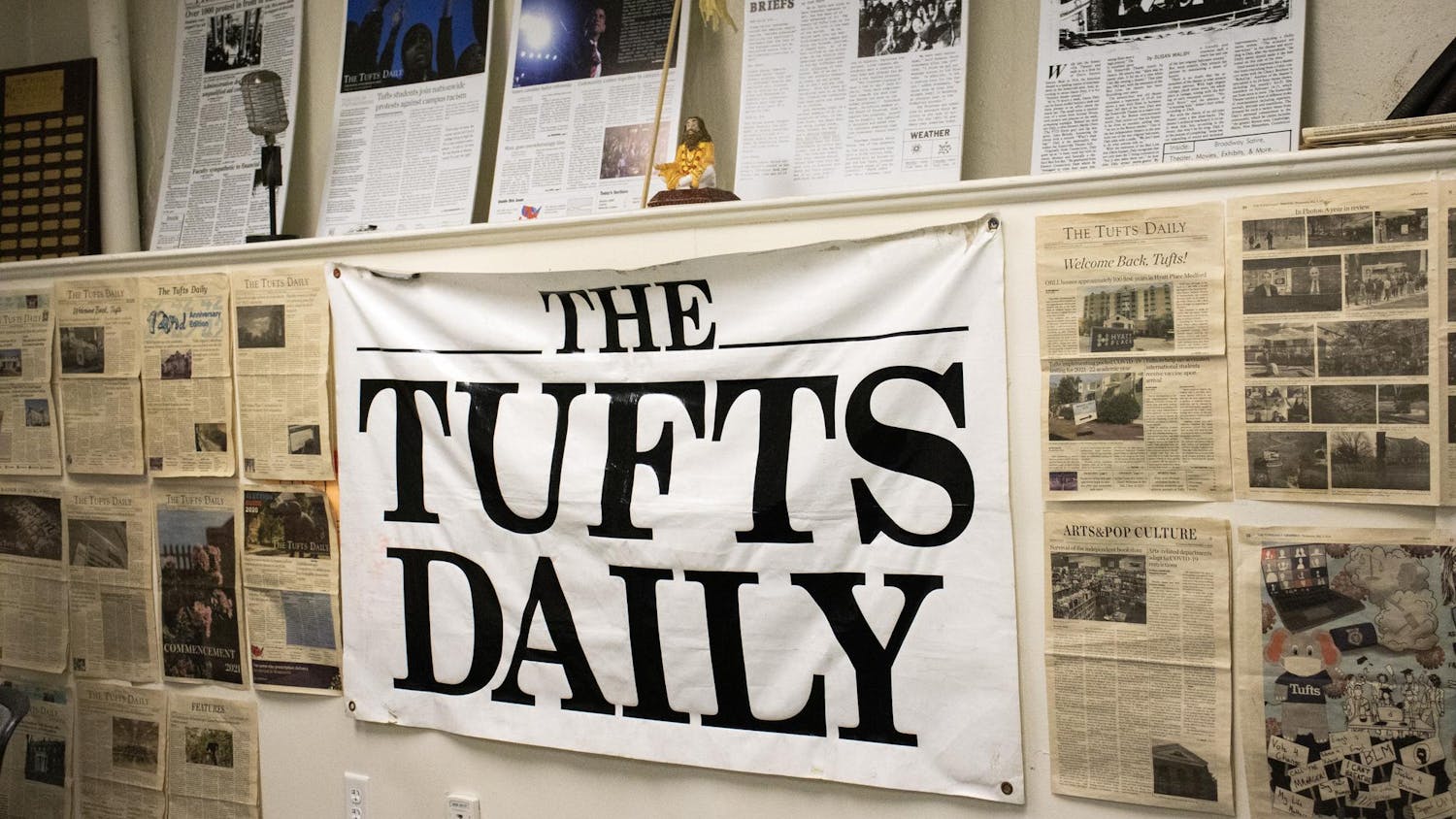Five years from now, Tufts University will be a vastly different place from the one we know today. The recently passed Strategic Plan will play a large role, but the greatest impact will be felt from the 2017 arrival of the new Green Line T Station at College Avenue.
With the arrival of the Green Line Extension, Tufts students will enjoy unprecedented mobility between Somerville, Boston and anywhere the T goes, increasing access to jobs and internships, nightlife in the city and all the cultural amenities Boston has to offer. Tufts will continue to market itself as a city-centric university, and Boston will continue to play an integral role in student life. There is, however, one major caveat not all students will be able to afford to use the T. Today, a round trip ride without a Charlie Card costs five dollars. An internship downtown twice a week can cost a student $40 per month out of pocket. While some students are lucky enough to receive funding from groups such as Tisch Scholars, these resources are not available to all.
Rather than resign ourselves to this inequity, we the Tufts Transit Coalition, a student group committed to sustainable and equitable transportation at Tufts and across Boston propose a University Pass (U-Pass) program in which Tufts University will partner with the Massachusetts Bay Transportation Authority to purchase substantially discounted, unlimited T passes for all students.
As part of this effort, today we are announcing a petition campaign to continue the push for a one-year pilot of a U-Pass program at Tufts. Neither the MBTA nor the administration at Tufts is fully ready to commit to a U-Pass program, but we believe action is necessary. 95 percent of students surveyed at Tufts support the creation of a U-Pass program, and the TCU resolution supporting a one-year pilot passed unanimously. A window of opportunity exists and we must utilize every lever available.
For students, the immediate benefit is clear: unlimited and unequivocal access to transportation across the Boston area. At a limited cost, all students who attend Tufts, regardless of income, will have increased access to transportation and be able to fully participate in the university experience.
There are benefits for the university as well. A University Pass is a concrete action Tufts can take to improve campus sustainability in a revenue neutral manner. In the long run, a U-Pass program should reduce demand for parking and, in turn, save space on campus, creating room for new dorms or cutting-edge labs rather than half-filled parking lots.
A U-Pass program will also prepare Tufts for the coming Green Line Extension. The extension will create the highest demand for public transit in the schools history and will likely be a major draw for incoming students. With this massive change to transit at Tufts quickly approaching, its time to act in favor of a sensible and sustainable future. Tufts has the ability to reshape how its students engage with the community, and a U-Pass program will further familiarize the student body with mass transit.
As the first school in Boston to create a U-Pass program, Tufts will stand as an institutional leader in innovative public policy, with a student body engaged in active citizenship and their surrounding community. While the Green Line Extension will attract students in the future, the extensive press coverage that would stem from a U-Pass program will promote the Tufts brand now.
Furthermore, the impact of a U-Pass program far surpasses the gates of Tufts. Part of the benefit of a U-Pass program is that it generates guaranteed revenue for the T. This revenue could be leveraged to create greater equity in transportation fares across the whole system by supporting a Youth Pass for high school students in Boston. Currently, one in five high school students in Boston report having missed a full day of school because they could not afford their T fare. Pairing a University Pass with a Youth Pass would form a new Transit Generation and improve both the connection and relationship between Tufts and the surrounding community.
Further, a guaranteed stream of MBTA revenue from Tufts provides the university with a valuable bargaining chip and would likely improve the working relationship that Tufts has with the T. Consider the potential benefits of a U-Pass if half of all college students in the Boston area took part in U-Pass programs: the MBTA could receive approximately $40 million in revenue annually. While this would not solve its immense financial burdens, this is a substantial amount of revenue that could truly strengthen the T and support the whole community.
In the long term, there is no doubt that every stakeholder students, the university, the T and the community as a whole will benefit from a U-Pass program. Yet, one or two schools have to test the waters first to illustrate the true benefits and vitality of such a program. Tufts (along with a potent student movement at Harvard) should take the lead in creating a one-year pilot of a U-Pass program.
While there is currently a relative lack of data on exactly how often students take the T, a recent Tufts Transit Coalition survey indicated it is very likely that a U-Pass program could be structured to generate revenue for the T in addition to benefiting Tufts and its students. Running a pilot program would gather further data in this area the T could track when and where every university pass was used from day one. With this data, the MBTA and Tufts could easily gauge the success of a U-Pass Program and adapt accordingly. This petition campaign is not the end of the conversation, but the beginning. Please, join with us, to Free the T.
Evan Johnston, a senior, Robert Joseph, a junior, Eyob Sharew, a sophomore and Emily Lansky, a freshman, are members of the Tufts Transit Coalition. The group can be reached at tuftstransitcoalition@gmail.com.





